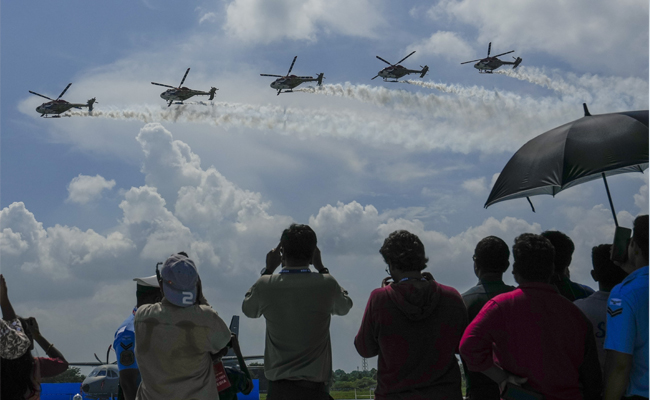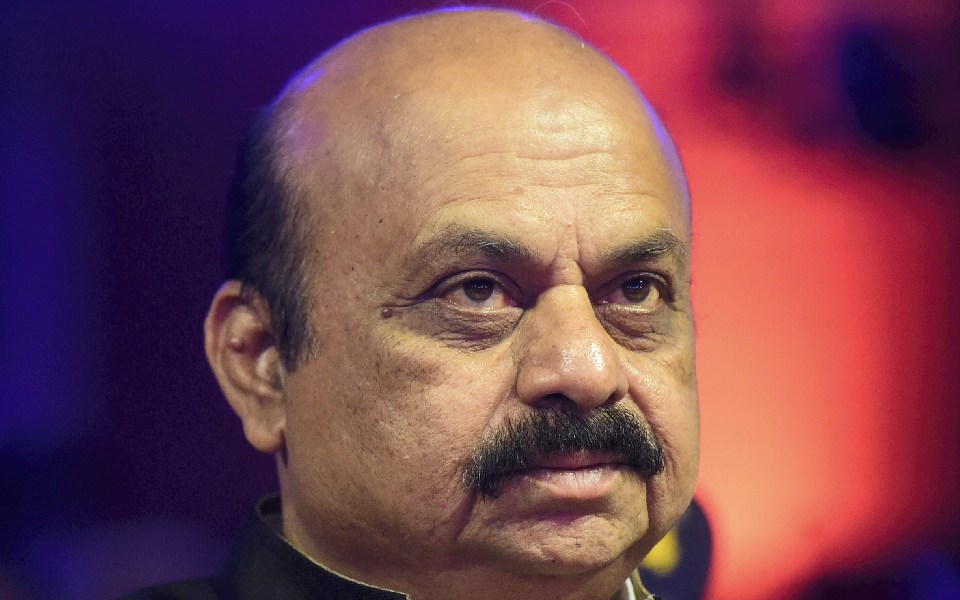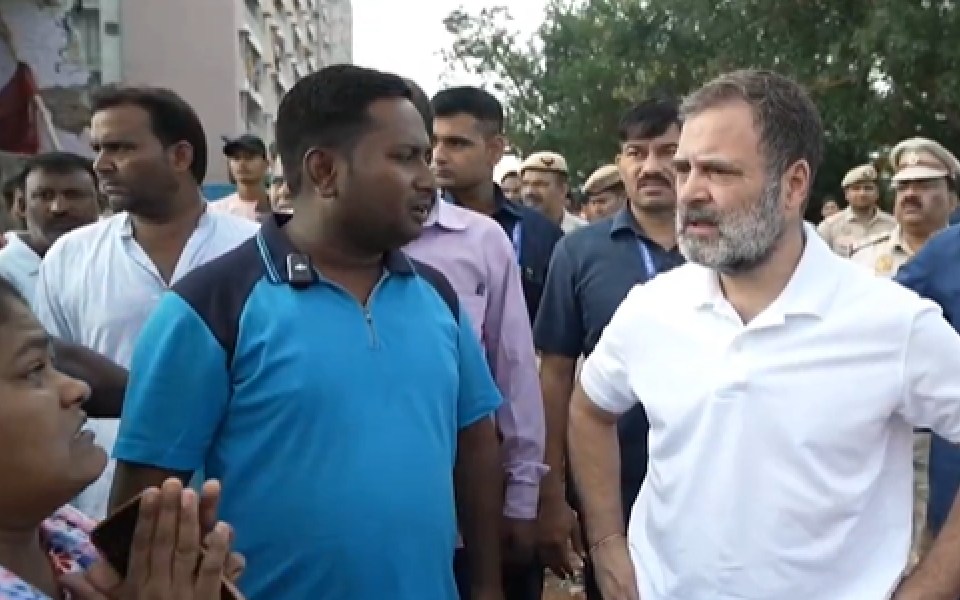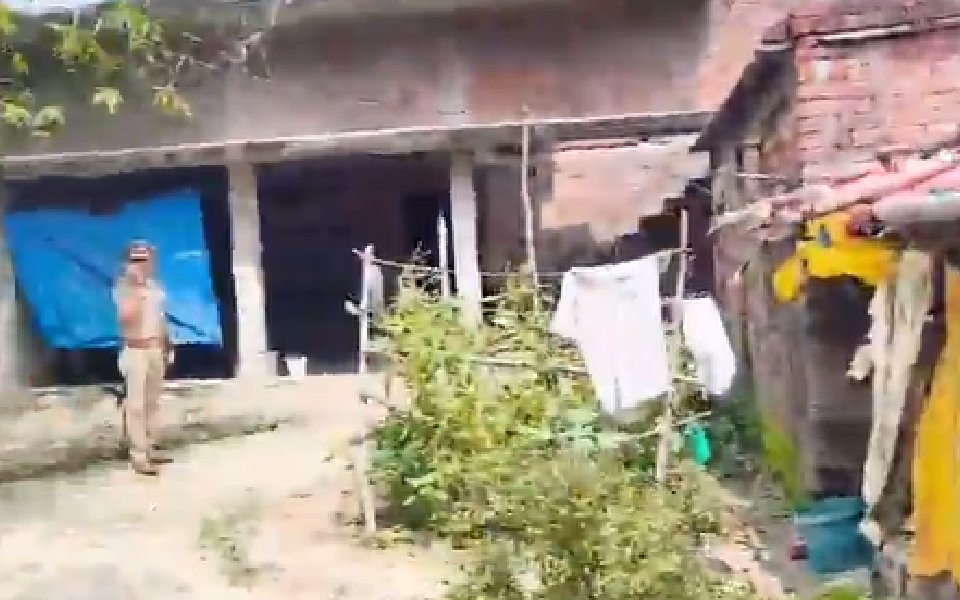Chennai (PTI): Chief of Air Staff, Air Chief Marshal Amar Preet Singh on Tuesday highlighted the need for the Indian Air Force (IAF) to realign itself to meet the present and future requirements as the global security environment is in a state of constant flux.
The ongoing conflicts have demonstrated the requirement to have a strong and capable Air Force. Therefore, there is a need for the IAF to be prepared to meet any contingency that challenges our national interest, he noted.
After reviewing the Parade at the Air Force Station in Tambaram near here on the occasion of 92nd IAF Day celebrations, he said, "adopting the latest technology along with innovative and out-of-the-box thinking will play a decisive role in today's multi-domain environment."
Singh recalled that last year the Indian Air Force made a significant stride in strengthening operational capabilities, enhancing professionalism and adapting to ever-evolving challenging modern warfare.
Noting that Air Force Day was an occasion to honour the 'courage' and 'valour' of air warriors, past and present, and pay homage to those who made supreme sacrifice, Singh said, "While we rededicate ourselves to the service of the nation, we must also look back to introspect on the previous year, celebrate our achievements, recognise areas where we fell short, learn our lessons and realign ourselves to the present and future requirements."
"The global security environment is in a state of constant flux. Ongoing conflicts have demonstrated the requirement to have a strong and capable air force. Therefore, there is a need for the Indian Air Force to be prepared to meet any contingency that challenges our national interest," he said.
Referring to the theme of this year's Annual Day, 'Bharatiya Vayu Sena: Saksham, Sashakt, Atmanirbhar (Potent, Powerful and Self-Reliant), he said, "it perfectly describes our aspirations."
"Over the years, we have become more empowered with better technology and achieved new levels of operational exploitation of our systems and weapons."
He pointed out that the past year was very eventful and the Air Force proved its mettle on various fronts.
In 2024, the IAF chief said, the Air Force expanded its participation in bilateral and multi-lateral exercises with Air Forces of friendly foreign countries. "We also conducted the largest multi-national exercise Tarang Shakti on the Indian soil after a gap of 61 years with participation from Air Forces of more than 30 nations," he added.
The first phase of 'Tarang Shakti' was held at Sulur in Tamil Nadu while the second phase was held in Jodhpur, Rajasthan, in August and September.
Dubbed as the 'largest multilateral air exercise', Tarang Shakti showcased the country's defence prowess and provided a platform to participating forces to foster interoperability.
During the Tarang Shakti exercise, Singh said that the overall arrangements and conduct of the exercise earned 'a lot of praise' and it is a testimony to 'the competence and professionalism' of the air warriors.
"We have been always the first responder in any calls of humanitarian assistance and disaster relief both within India and abroad. In the last one year, the Indian Air Force has been called upon to provide flood relief in many locations while fighting forest fires in some other," Singh said.
The Indian Air Force beyond the borders, also played an important role in relief and evacuation from many countries, he added.
"Rescue of Merchant ship MV Ruen in March this year, demonstrated our strategic reach and prowess," he said.
Singh remarked that the welfare and well-being of IAF personnel and their families continue to be of 'utmost importance'.
"The Indian Air Force remains fully committed to providing a conducive working environment for one and all," he said.
The Air Chief Marshal, while speaking on the previous year’s achievements, said "one of our primary objectives is to deliver weapons, on target, on time, every time and this capability was aptly showcased during the firepower demonstration exercise ‘Vayu Shakti’ at Pokhran Range in February 2024."
He congratulated the officers for an immaculate ceremonial parade on the occasion.
A breath-taking demonstration of air power and a spectacular static display of state-of-the-art equipment featuring ALH Mk-4, C-295 Transport aircraft, Akash Missile Defence System, HTT-40, and Rohini radar, marked the celebrations, graced by the Chief of Defence Staff General Anil Chauhan.
The parade commenced with the marching-in of the President’s Colours, symbolising pride, unity, strength and esprit-de-corps. The atmosphere became even more melodious through the performance of a Tri-Services Band, which filled the air with patriotic fervor.
The Air Warrior Drill Team captivated the audience with their sharp and synchronised movements, leaving a lasting impression on all those present.
A captivating aerial display, with various jets including Tejas Light Combat Aircraft, Sukhoi-30 MKI and Pilatus performing daring low-level aerobatic manoeuvres was also key highlight of the celebration. The Suryakiran aerobatics team and Sarang helicopter team mesmerised the crowd with their thrilling performances.
Let the Truth be known. If you read VB and like VB, please be a VB Supporter and Help us deliver the Truth to one and all.
Gadag (Karnataka), Jul 27 (PTI): BJP leader and former Karnataka Chief Minister Basavarj Bommai on Sunday condemned Goa Chief Minister Pramod Sawant's statement on the Mahadayi river project, as he also questioned the Congress' moral right to speak on the issue.
He claimed that whatever progress has been made on the Mahadayi issue, it happened under the BJP government.
Addressing the Goa Assembly last week, Sawant claimed that the Centre would not approve the Mahadayi project.
He also said the Goa government would file a contempt petition in the Supreme Court against Karnataka for carrying out activities aimed at diverting Mahadayi river water.
Bommai said, "There is no need to politicise the Mahadayi project issue. We are all united as this is an issue concerning the state. I condemn the statement made by the Chief Minister of Goa. There is no need to play such a big political game over one state's interests. He must act in accordance with the law, and hence I condemn his remarks."
Speaking to reporters here, he questioned the moral standing of Congress leaders in Karnataka on the Mahadayi issue.
"Congress leader Sonia Gandhi herself during the Goa polls said that not a single drop of Mahadayi water would be given to Karnataka. What moral right does Congress have to speak on this issue?" he asked.
Dubbing the Goa CM's statement an "insult to the people of Karnataka", CM Siddaramaiah had earlier hit out at the BJP stating "Why has the Centre not officially communicated its concerns? Is this how federalism works under the BJP? Are we being punished for not surrendering to the BJP?"
Bommai accused the Congress party of building a barrier to prevent Mahadayi water from flowing into the Malaprabha river, thereby obstructing the interlinking canal work initiated during the BJP regime and this was the only "contribution" Congress made to the Mahadayi project.
"Whatever progress has been made on the Mahadayi issue, it happened under the BJP government. The Congress, which constituted the tribunal, did not even provide it an office for four years. It was the BJP government that gave it an office. Though the tribunal gave a verdict, it was not notified. The NDA government under Prime Minister Narendra Modi issued the notification," he said.
It was the central NDA government that prepared the DPR for the Mahadayi project and got it approved. "It was also the BJP government that secured environmental clearance. The only thing the Congress did was to block the interlinking canal works started during the BJP tenure by constructing a barrier to prevent Mahadayi water from reaching the Malaprabha river," he said.
Goa has been opposing Karnataka's Kalasa-Banduri project in the Mahadayi river basin.
The Kalasa-Banduri project by the Karnataka government proposes diverting Mahadayi river water into the Malaprabha river to enhance the drinking water supply in parts of Dharwad, Belagavi, Bagalkote, and Gadag districts.
The Mahadayi river flows through Karnataka and Goa before joining the Arabian Sea. Known as the Mandovi in Goa, it is one of the state's two major rivers.
The diversion of Mahadayi water has long been a point of contention between Karnataka and Goa, with the latter claiming "it would severely impact the state's flora and fauna."
Speaking about the urea shortage in the state, Bommai said the government could have averted the crisis.
"Rainfall began early this year, and fertilizer should have been supplied where needed. Buffer stock should have been maintained, the management has not been proper," he said.
Noting that the state government has now submitted to the Centre for additional urea fertilizer supply, he said, "We (BJP) too will speak with the Union Minister for Agriculture and Fertilizers to get more supply. But more importantly, the fertilizer that is already arriving must be distributed properly by the Agriculture Department and the concerned ministers."





